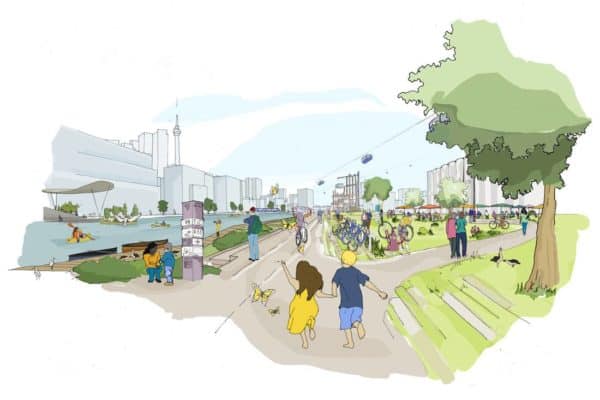Toronto’s smart city plans with Google were not unanimously approved by Waterfront board

 Toronto’s smart city may be off on the wrong foot.
Toronto’s smart city may be off on the wrong foot.
In the rush to embrace technology giant Google and its subsidiary Sidewalk Labs, the city of Toronto may have not done their due diligence, says one Waterfront board member.
On Tuesday, stewardship group Waterfront Toronto made the announcement that New York-based Sidewalk Labs, a Google side project geared towards urban innovation, had won the competition to remake a 12-acre plot of land to be named Quayside along Toronto’s eastern shoreline.
The news was seemingly greeted with cheers from all sides, with Prime Minister Justin Trudeau on hand for the reveal at Corus Quay, along with Eric Schmidt, Alphabet’s executive chairman and Dan Doctoroff, chief executive for Sidewalk Labs.
“We looked all over the world for the perfect place to bring this vision to life and we found it here in Toronto,” Doctoroff said.
But as reported by BNN, the decision by the Waterfront Board —a group founded by the federal, provincial and municipal governments with a mandate to revitalize Toronto’s waterfron — was not unanimous, nor was the board given adequate time to review Sidewalk’s plan.
According to meeting minutes, board member Julie Di Lorenzo said that she “had only had four business days to review the agreement and that she had been unable to complete her due diligence on the transaction or support a resolution to approve the agreement.”
The planned project will see Alphabet committing $50 million over the next year in consultation with stakeholders before coming up with its vision for Quayside, expected to feature smart sensors for infrastructure such as streets, sidewalks and garbage cans along with innovative solutions to address issues such as affordable housing and climate change. If the initial project goes well, the plan could eventually incorporate a larger territory of 800 acres that the city is looking to redevelop.
“A lot of the things I think we might want to do, while you can pilot them at the Quayside level, they really achieve their real benefit at a larger scale,” Doctoroff said.
Concerns have also been raised (and will no doubt continue to be put forward) over privacy issues surrounding the Google project, which will take in untold reams of data on city residents and their behaviour. On that note, Bilal Khan of scaleup innovation hub OneEleven says that the worries are legitimate.
“Can we see a future city with sensor technology without data being absorbed, processed and analyzed? That’s just not going to happen,” says Khan. “We all know that Alphabet is a data technology company, that’s what they’ve built their business on, so there’s no doubt that they’re going to be very interested in that data,” says Khan in conversation with BNN.
Khan makes the claim that the unprecedented nature of the project means that, effectively, due diligence isn’t a realistic goal, and that it will be up to the city and its executive to be vigilant along the way. “What we need to do is to make sure that we build a regulatory environment that at least ensures that we know what’s happening with the data, that there’s transparency ties to some of that stuff,” says Khan.

